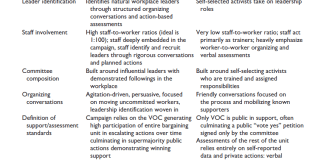Commentators who advocate either for or against corporate and asset managers addressing climate risks often refer to “fiduciary duty” as justification for their claims. Yet no field of corporate or asset management actually imposes one standalone fiduciary duty. Nor do any two business-law fields impose the same fiduciary regime. Instead, these fields adopt differing arrays of fiduciary duties to address various types of relationships, comprising a different blend of affirmative obligations and/or prohibitions, assessed with different degrees of strictness by enforcers and courts. As a result, overgeneralizations about fiduciaries’ duty in all business-law contexts tend to further obscure what a real-world fiduciary must, can, or cannot do in the face of today’s systemic climate risks.
A new white paper published today by the Sabin Center for Climate Change Law explores precisely where fiduciary law may require, permit, or prohibit corporate and investment decision-makers’ actions to address climate risk. This paper compares fiduciary regimes in five distinct legal contexts relevant to long-term U.S. economic development: corporate operations, contracted partnerships, employment-based retirement savings, a broader range of investment portfolios, and private trusts. It outlines these fiduciary roles by first tracing where a given fiduciary’s obligations originate, what that fiduciary controls, and on whose behalf the fiduciary exerts this control. It then fleshes out fiduciary roles along several axes, including which particular duties the fiduciary faces, what standard of review is applied, and how much autonomy exists to contract away from default parameters of the fiduciary relationship.
Key findings include:
Across different fields of law, different duties inform fiduciaries’ ability to take action on climate risk. Fiduciaries face differing combinations of duties such as: care, loyalty, impartiality, obedience, disclosure, prudence, and/or asset diversification. For climate-risk concerns, the most notable differences center on duties of diversification and impartiality, which require fiduciaries to pursue overall gains for a particular beneficiary’s portfolio, or for multiple beneficiaries’ portfolios—rather than to prioritize the performance of any one investment within these portfolios. Fiduciaries facing these duties should factor into their investment analysis, for example, how an emissions-intensive corporation seeking to maximize “firm-specific” gains for its shareholders might threaten the investment-portfolio stability that asset-management diversification is meant to provide.
Across different fields of law, fiduciaries can face the same duty with different legal definitions. Asset managers operating under the Employee Retirement Income Security Act of 1974 (ERISA) face a “sole-interest” standard of loyalty, for example, which arguably amounts to a per se prohibition on pursuit of third-party interests, strictly precluding emissions-mitigating investment strategies that are not justified through risk-return financial analysis. By contrast, asset managers operating under the Investment Advisers Act of 1940 (the Advisers Act) face a looser “best-interest” standard for their loyalty duty, permitting a broader range of investment considerations, so long as the adviser does not subordinate a client’s interests to those of the adviser, or of other clients.
Across different fields of law, parties possess varying degrees of autonomy to depart from default fiduciary relationships. For example, both ERISA fiduciaries and private-trust fiduciaries, start from a default sole-interest standard of loyalty. However, whereas ERISA offers parties little room to negotiate the parameters of this strict fiduciary standard, parties to a trust have numerous opportunities to tailor a bespoke fiduciary relationship. This could include the designation of a trust’s particular purposes, with states such as Delaware permitting a trust fiduciary’s pursuit of “the beneficiaries’ personal values, including the beneficiaries’ desire to engage in sustainable investing strategies that align with the beneficiaries’ social, environmental, governance or other values or beliefs of the beneficiaries.”
Overall, comparing these varied fiduciary regimes suggests that advocates of addressing systemic climate risk not only can counter restrictive formulations of “the fiduciary duty,” but also can leverage diversities within these siloed fields. Relatively permissive regimes (such as those operating under states’ corporate law and the federal Advisers Act, or through bespoke private-trust arrangements) provide fiduciaries with ample grounds for deploying emissions-mitigating efforts in the pursuit of beneficiaries’ best interests. Relatively restrictive regimes, particularly those with diversification and/or impartiality obligations (such as those operating under ERISA and default private-trust law), can ultimately require all of their fiduciaries to consider systemic risks.
Read the full white paper on Columbia’s Scholarship Archive here.
Great Job Cynthia Hanawalt and Andy Fitch & the Team @ Climate Law Blog Source link for sharing this story.






